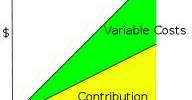While we have discussed what Jack Dorsey’s departure means for Twitter (and now Block), I am still thinking about a few phrases from his resignation post. “A lot of people talk about how important it is for a firm to be ‘founder-led,'” Dorsey wrote. “In the end, I think it’s highly restrictive and a single point of failure.” I’ve put in a lot of effort to guarantee that this firm can break free from its founders.” “It’s vital that a firm can stand on its own, devoid of its founder’s influence or direction,” Dorsey noted.
This is a big statement: success as a founder might look like employing clever enough people to the point where you no longer needed to keep the firm running day in and day out. If you leave on vacation and your team cannot perform without slacking you every few minutes, it speaks more about the company’s strength than the team’s strength.
Last month, I discussed the necessity of distinguishing between a founder, a founding team member, an adviser, an investor, an angel investor, and an early employee in terms of ownership and incentive. This week, I would want to shift gears and discuss when it is time to unlearn or, at the very least, develop from those titles. Founders eventually become the “VP of nothing,” as Floodgates partner Iris Choi said in our recent podcast about founder friendliness.
No one can deny that a startup’s success is dependent on people other than its founder, but transitioning that person from important to non-essential may be difficult (particularly in today’s hyper-friendly atmosphere for entrepreneurs). As I previously stated, I believe that in a decade, due diligence will begin to examine more than how a founder perceives his sector.
Entrepreneurs may test on their capacity to employ, alter their opinions, and recognize when to walk away. Removing the concept from the identification so that the firm is not fundamentally linked to a founder is good for the organization’s survival, but it will need some serious attribution discussions.
I spoke with creators and investors to get a sense of how comfortable they are with the concept of endorsing and implementing the market’s promise of decentralized power. Check out my TechCrunch+ post, Founders must decouple their own concept from its inventor, for more on this issue. Alex and Amanda added their two cents to the conversation, stating that founders are not rockstars and that we should not regard them as such.
















